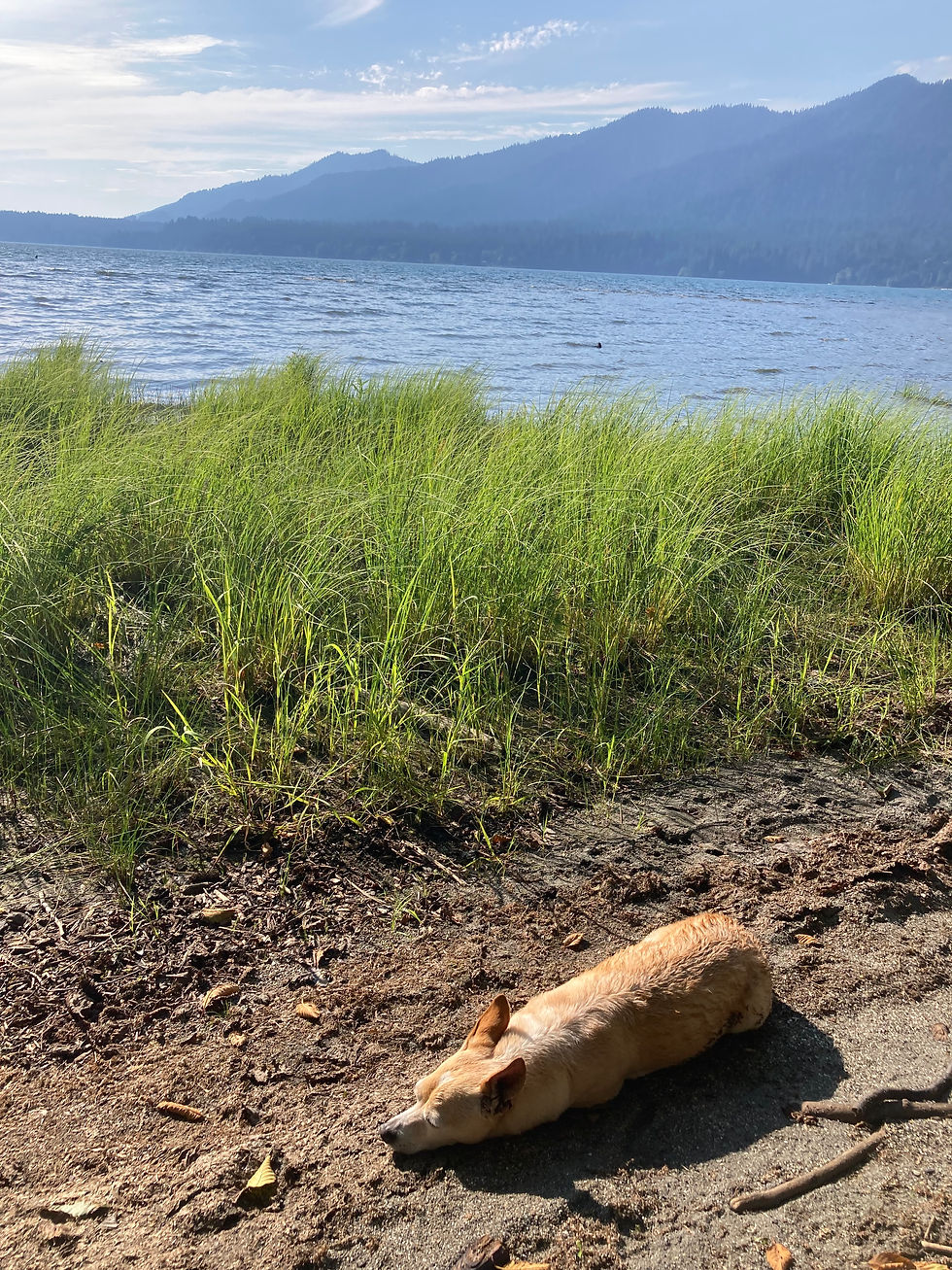Do You Want to Improve Health and Wellbeing? Grow Reciprocal-Shared Care
- Monica Eastway

- Jan 9, 2023
- 3 min read

Photo: A Bumblebee pollinating the manzanita flowers= Reciprocal-Shared Care
How often do you think about the link between biodiversity and human health?
According to the World Wildlife Fund,
"Biodiversity is all the different kinds of life you'll find in one area --- the variety of animals, plants, fungi, and even microorganisms like bacteria that make up our natural world. Each of these species and organisms work together in ecosystems, like an intricate web, to maintain balance and support life. Biodiversity supports everything in Nature that we need to survive, food, clean water, medicine and shelter."
Currently, one million animal and plant species are threatened with extinction,
the highest number in human history!
How can we care for each other,
if we do not care for the ecosystems that sustain us all?
Is the biodiversity crisis directly related to our broken relationship with Nature?
There's no time like the present to grow nature connectedness for our health and the health of ecosystems that sustain us all.
According to the Nature Connectedness Research Group, Nature Connectedness,
"captures the relationship between people and the rest of Nature. Nature connectedness is a measurable psychological construct that moves beyond contact with Nature to an individual's sense of their relationship with the natural world."
A strong connection with Nature means feeling a close relationship or an emotional attachment to our natural surroundings.
Research shows that people with high levels of nature connectedness are happier, less stressed, and report having more vitality and meaning in their lives. Feeling connected to Nature generates positive emotions like calmness, creativity, joy, facilitates focus, concentration, and lessens feelings of isolation and loneliness for all ages.
The human-nature relationship promotes wellbeing for humans, and nature connectedness generates pro-environment behavior—a win for humanity and all our relations. By embracing Reciprocal-Shared Care, the burdens of care 'giving' lesson, as both caregiver (person, plants, animals) and care receiver (person, plants, animals) gain the many benefits from caring in, for, and with Nature.
How is Reciprocal-Shared Care different from Person-Centered Care?
In, Reciprocal-Shared Care, individuality, values, preferences, emotional and social needs of the individual are foundational for the care relationship, person-centered care.
Reciprocal-Shared Care expands Person-Centered Care to include the needs of the carer, community, and natural environment while nurturing contribution, regeneration, and healthy ecosystems for all; care giver, care receiver, whole communities, and ecosystems.

Reciprocal-Shared Care is a Care Practice that,
1) Emphasizes the interdependence of giving and receiving
2) Embraces Nature's Way of ensuring healthy ecosystems
3) Attends to the needs of both caregivers and care receivers, the whole community, including soil, air, water, plants, animals; the surrounding natural environment
3) Grows Nature Connectedness
4) Prevents care burnout: RSC works with Nature for health promotion while restoring and nurturing natural habitats and growing biodiversity
Nature = A Dynamic, Dedicated, Powerful Care Ally!
Are You Ready to Grow Reciprocal-Shared Care?
Are Your Ready to Grow
Nature Connectedness?
"What if, from the beginning of life, Nature were perceived as a teacher, guide, source, as important to us as our families? How differently would we live?"
- Anita Barrows, from her essay The Ecopsychology of Child Development

Nature Connectedness Practice
Do you feel a kinship
with animals and plants?
Think for a moment about the connection you share with plants and animals.
Become aware of your breath.
Breathing in and out.
As you breathe in and out, know that as you breathe in, you and the animal kingdom are taking in oxygen produced by the plant kingdom. When breathing out, you release carbon dioxide plants use to make food, and the interdependent oxygen cycle repeats.
Take 10 for Vitamin N, Often!
While outdoors, breathing in and out, bring awareness to this interdependent cycle
that makes breathing possible.







